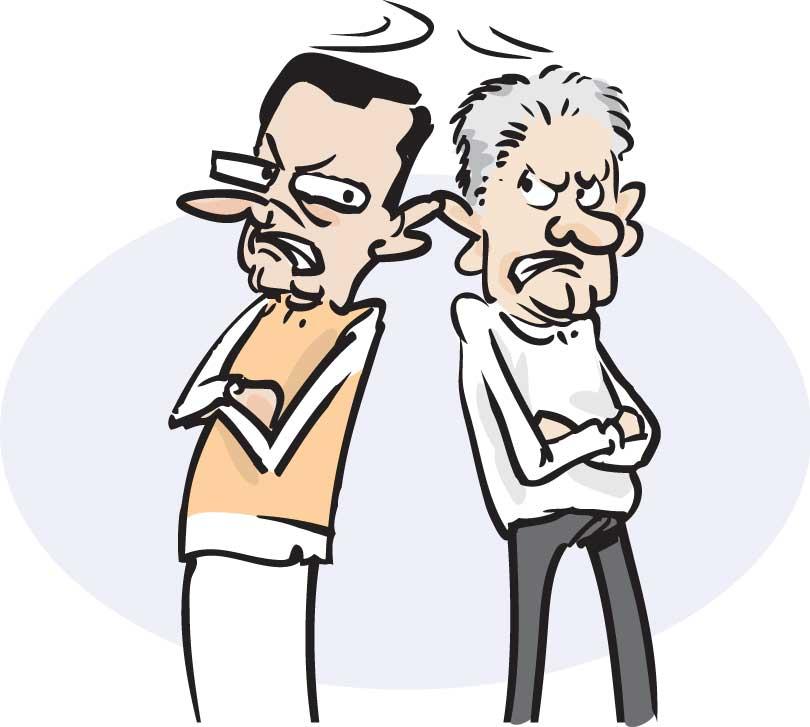Reply To:
Name - Reply Comment

The drubbing, which the Sri Lankan cricketers received at the hands of the Australia, would have left millions of cricket fans in Sri Lanka dejected and despondent. But sadly though, this is a reflection of the mess and muddle that governance in Sri Lanka has got itself into. Some 6.2 million people voted for the then common candidate Maithripala Sirisena to elect him President in a campaign spearheaded by the United National Party (UNP) led by Ranil Wickremesinghe, who was appointed Prime Minister. Sri Lanka’s post-2015 journey, which began with a bang marked with eagerly awaited assurances of good governance or the much bandied ‘yahapalanaya’ have now whittled down to a whimper with dark clouds of doom hovering over the horizon.
Meanwhile, somewhere down the line the relationship between the President and the Prime Minister turned sour culminating in last year’s October 26 constitutional crisis with the President sacking his own government and the Prime Minister. This crisis had delivered a telling blow on the Ranil Wickremesinghe government from which it was gradually recovering, when came the Easter Sunday attacks and in its aftermath the riots in several parts of the North-Western Province.
This had resulted in a three-member committee comprising Supreme Court Justice Vijith Malalgoda, retired IGP N.K. Illangakoon and former ministry secretary Padmasiri Jayamanne being appointed by the President on April 22 and later a Parliamentary Select Committee (PSC) being appointed by the Speaker on the request of Parliament to arrive at the truth and reveal to Parliament and to the people as to who was responsible for what happened. The President, who is also the Minister of Defence and Law and Order made several attempts to scuttle the PSC sittings and at one point had even threatened not to convene Cabinet meetings if the PSC was not scrapped. It has made the public wonder whether the President was doing so out of fear that the revelations made by government officials -- such as the State Intelligence Services Chief Sisira Mendis, who subsequently resigned citing health reasons; IGP Pujith Jayasundere, now on compulsory leave and the former defence secretary Hemasiri Fernando, who has also resigned -- would show the President up in poor light and as having neglected his duty to heed the warnings of a pending terror attack.
Be that as it may, with just a few more months to go for presidential elections, sometime before December 9, 2019, we have the President pulling in one direction and the Prime Minister in another, while the country and its people caught in the middle, being clueless as to what is happening, where they are heading or what is in store for them. Political analysts have on several occasions highlighted the attempts made by the various governments in office since the 1970s to tinker with the systems in place, such as the constitutional provisions, with law and order or the Judiciary.
Among many such attempts we have the case of President Maithripala Sirisena, who sought a Supreme Court determination on when his term ends -- whether in five years from January 9, 2015 under the 19th Amendment or in six years -- as he was elected prior to the 19th Amendment being enacted. A five-judge bench of the Supreme Court ruled that President Sirisena’s tenure ends on January 9, 2020.
Then there were plans to once again seek a Supreme Court ruling to determine whether the President could continue till June 2020 on the basis that the Speaker signed the 19th Amendment into law on June 25, 2015. Currently this plan has taken a back seat with new moves being made by the President to hold a non-binding referendum to seek public approval for a parliamentary election before a presidential election. This move is being vigorously opposed by the United National Party (UNP) led United National Front (UNF) government and the main opposition, the Sri Lanka Podujana Peramuna (SLPP). They are urging that the presidential election scheduled for this year should be held first.
Amid the uncertainty prevailing in the country, Sri Lanka Freedom Party (SLFP) General Secretary Dayasiri Jayasekara told a news conference on Wednesday that the referendum was a non-binding exercise and that even in the event a majority voted in favour of general elections to be held first, the President would be unable to dissolve parliament prior to it completing four-and-a-half years in office. If nothing worthwhile can come out of such a referendum then why hold one by wasting so much of time and money is the next big question.